Related Research Articles

Andrei Romanovich Chikatilo was a Ukrainian-born Soviet serial killer nicknamed the Butcher of Rostov, the Rostov Ripper, and the Red Ripper who sexually assaulted, murdered, and mutilated at least fifty-two women and children between 1978 and 1990 in the Russian SFSR, the Ukrainian SSR, and the Uzbek SSR.

Richard Allen Davis is an American convicted murderer whose criminal record fueled support for the passage of California's "three-strikes law" for repeat offenders and the involuntary civil commitment act for sex offenders and predators. He was convicted in 1996 of first-degree murder with special circumstances of 12-year-old Polly Klaas. As of January 2024, Davis remains on California's death row in the Adjustment Center at San Quentin State Prison.
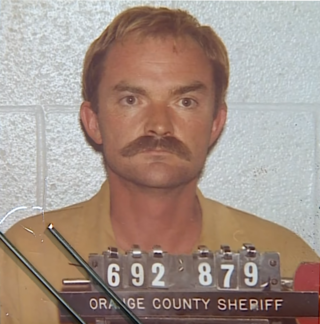
Randy Steven Kraft is an American serial killer and rapist known as the Scorecard Killer, the Southern California Strangler, and the Freeway Killer, who committed the rape, torture, and murder of a minimum of sixteen young men between 1972 and 1983, the majority of whom he killed in California. Kraft is also believed to have committed the rape and murder of up to fifty-one other young men and boys. He was convicted in May 1989 and is currently incarcerated on death row at San Quentin State Prison in Marin County, California.
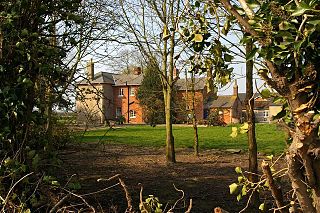
The White House Farm murders took place near the village of Tolleshunt D'Arcy, Essex, England, during the night of 6–7 August 1985. Nevill and June Bamber were shot and killed inside their farmhouse at White House Farm along with their adopted daughter, Sheila Caffell, and Sheila's six-year-old twin sons, Daniel and Nicholas Caffell. The only surviving member of the immediate family was the adopted son, Jeremy Bamber, then aged 24, who said he had been at home a few miles away when the shooting took place.

Eugène Ney Terre'Blanche was an Afrikaner nationalist who founded and led the Afrikaner Weerstandsbeweging. Prior to founding the AWB, he served as a South African Police officer, was a farmer, and was an unsuccessful Herstigte Nasionale Party candidate for local office in the Transvaal. He was a major figure in the right-wing backlash against the collapse of apartheid. His beliefs and philosophy have continued to be influential amongst white supremacists in South Africa and across the world.
"Adam" was the name police gave to an unidentified male child whose torso was discovered in the River Thames in London, United Kingdom, on 21 September 2001. Investigators believe the child was likely from southwestern Nigeria, and that several days before his murder, he was trafficked to the United Kingdom for a muti ritual sacrifice. To date, nobody has been charged with Adam's murder, and his true identity remains unknown.

Niagara is a 1953 American film-noir thriller film directed by Henry Hathaway, produced by Charles Brackett, and written by Brackett, Richard L. Breen and Walter Reisch. The film stars Marilyn Monroe, Joseph Cotten, Jean Peters, and Max Showalter. It was one of 20th Century Fox's biggest box-office hits that year.
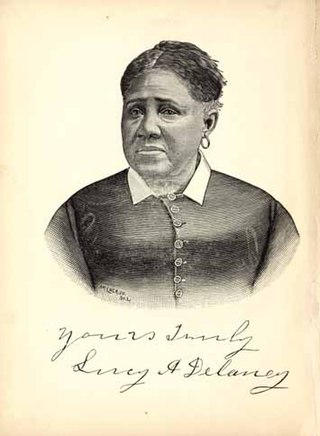
Lucy Delaney was an African American seamstress, slave narrator, and community leader. She was born into slavery and was primarily held by the Major Taylor Berry and Judge Robert Wash families. As a teenager, she was the subject of a freedom lawsuit, because her mother lived in Illinois, a free state, longer than 90 days. According to Illinois state law, enslaved people that reside in Illinois for more than 90 days should be indentured and freed. The country's rule of partus sequitur ventrem asserts that if the mother was free at the child's birth, the child should be free. After Delaney's mother, Polly Berry, filed a lawsuit for herself, she filed a lawsuit on her daughter's behalf in 1842. Delaney was held in jail for 17 months while awaiting the trial.

Elephants Can Remember is a work of detective fiction by British writer Agatha Christie, first published in 1972. It features her Belgian detective Hercule Poirot and the recurring character Ariadne Oliver. This was the last novel to feature either character, although it was succeeded by Curtain: Poirot's Last Case, which had been written in the early 1940s but was published last. Elephants Can Remember concentrates on memory and oral testimony.

Blast from the Past is a 1998 novel by Ben Elton, published by Bantam Press and later adapted into a stage performance by the West Yorkshire Playhouse. The plot centres on Polly Slade, an ordinary woman with a highly unusual past, whose world is thrown into turmoil when the two men in her life show up at her front door in the middle of the night: Jack, a general in the United States Army with whom she had a short-lived affair as a teenager and Peter, an obsessive stalker who has been terrifying her for the past two years. Themes of the novel include obsession, rape, the morality of war, gender politics, and whether one can ever hope to return to the past and find that everything is just as one remembers it.

Ticking Clock is a 2011 American mystery action thriller film directed by Ernie Barbarash. The film stars Cuba Gooding Jr., with a supporting cast of Neal McDonough, Nicki Aycox and Austin Abrams. The film was released on direct-to-DVD in the United States on January 4, 2011.

Louis Allen was an African-American logger in Liberty, Mississippi, who was shot and killed on his land during the civil rights era. He had previously tried to register to vote and had allegedly talked to federal officials after witnessing the 1961 murder of Herbert Lee, an NAACP member, by E. H. Hurst, a white state legislator. Civil rights activists had come to Liberty that summer to organize for voter registration, as no African-American had been allowed to vote since the state's disenfranchising constitution was passed in 1890.
Maki Skosana was a black South African woman who was burned to death and the footage broadcast live on South Africa's state-run television. She was killed by a mob of anti-apartheid activists who suspected her of being an informant. Her death by "necklacing" elicited outrage beyond the nation. The Truth and Reconciliation Commission has identified Skosana as the first known victim of necklacing, although it is more likely that she was not the first such death, only the first filmed.
The kidnapping of Amber Swartz-Garcia occurred on June 3, 1988, in Pinole, California when she was seven years old. She had been playing jump rope in her front yard when she was abducted. Curtis Dean Anderson, a convicted kidnapper, confessed to kidnapping and killing Swartz-Garcia shortly before his 2007 death, but doubts remain about his involvement.
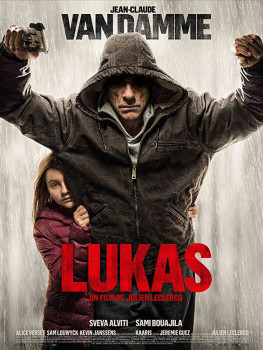
The Bouncer is a 2018 French-Belgian action thriller film directed by Julien Leclercq, starring Jean-Claude Van Damme, Sveva Alviti and Sami Bouajila.

Murder on the Yukon is a 1940 American adventure film directed by Louis J. Gasnier and written by Milton Raison. It is based on the 1931 novel Renfrew Rides North by Laurie York Erskine. The film stars James Newill, Polly Ann Young, Dave O'Brien, Al St. John, William Royle and Chief Thundercloud. The film was released on February 25, 1940, by Monogram Pictures.
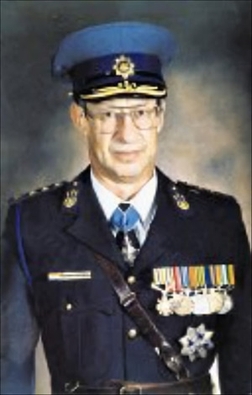
General Johan Velde van der Merwe was a South African police officer. He held senior positions in the Security Branch and was Commissioner of the South African Police from 1990 to 1995. He was implicated in the use of death squads, torture, and other human rights abuses as part of the apartheid government's crackdown on the then opposition.

The murders of Harry and Megan Tooze, also known as the Llanharry murders, were the high-profile killings of an elderly couple at their remote Ty Ar y Waun farm near Llanharry, Rhondda Cynon Taf, Wales, United Kingdom, on 26 July 1993. The couple were shot dead at point blank range with a shotgun in an execution-style killing, and their killer had attempted to hide their bodies in the cowshed of the farm. Their best china was found mysteriously laid out on the table in the farmhouse as if the couple were expecting a guest, and their lunch was found cooked but not eaten on the stove. It was described by the lead detective in charge of the case as the "most baffling" case he had investigated.
Johan Kotze, dubbed the Modimolle Monster, is a notorious South African woman abuser who is currently serving two life sentences at the country's high security prison. He was sentenced for torturing his ex-wife, Ina Bonette, and for forcing his three workers to take turns in raping her before he shot dead her 19-year-old son, Conrad Bonette, in revenge for divorcing him. After an 8-day long countrywide police hunt involving Interpol, the Hawks, the public and private security companies, Kotze was finally arrested after he surrendered at a friend's place in Limpopo's Drie Hekke town's Schoeman street on 12 January 2012. He was sentenced to two life sentences as well as an additional 25 years imprisonment sentence by the Pretoria High Court on 17 July 2013 along with his three accomplices.
References
- 1 2 3 4 5 6 7 8 9 10 11 12 13 14 15 16 17 18 Pistorius, M. (2012). "6. Case Study: Dorothea Kraft". Fatal Females: Women who kill. Penguin Random House South Africa. ISBN 978-0-14-352689-6 . Retrieved 16 October 2019.
- ↑ "Responses in South Africa to the outbreak of WWI: The Afrikaner Response and the 1914 Rebellion". South African History Online. Retrieved 16 October 2019.
- 1 2 3 4 5 6 7 8 9 10 11 Marsh, Rob (1991). "3. When Witchcraft Fails: Dorethea Kraft 1912". Famous South African Crimes (PDF). Struik Publishers. p. 15. ISBN 9780869784488 . Retrieved 16 October 2019.
- 1 2 3 4 5 6 7 8 9 Barney Black & Tara Sariban (6 September 2019). Dorothea Kraft and The Berrima Axe Murderer John Lynch (podcast). podbean.com. Retrieved 16 October 2019.